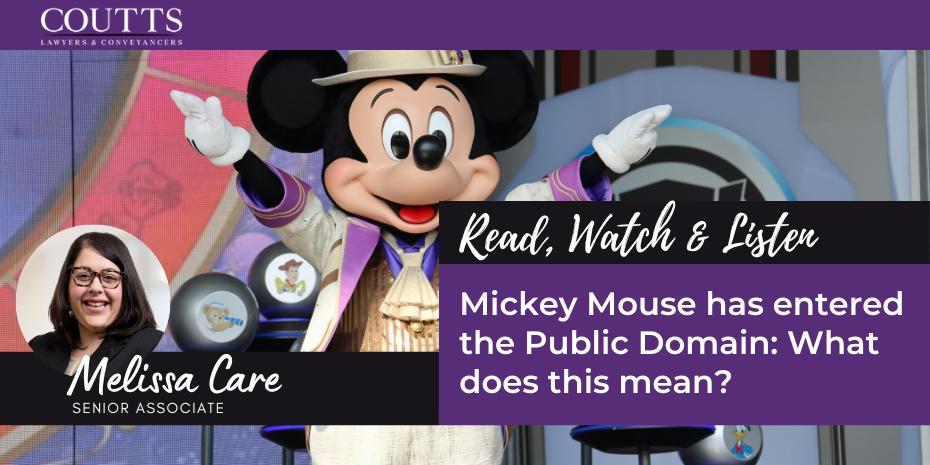No, there are restrictions on businesses sending promotional or other emails. Such emails cannot be sent without complying with the relevant legislation and without your business covering off certain steps.
This is a simple starting summary for the requirements your business must comply with in sending promotional or other emails.
The requirements apply to commercial emails. The Spam Act 2003 (Spam Act) broadly prevents the sending of commercial emails except for emails that contain “consent, identify and unsubscribe”.
Although the legislation has been in force for quite some time, the issues around commercial emails and consent have become popular and in focus this year, particularly with a refocus on other privacy related laws in 2018.
Is my email a “commercial email”?
It is important that businesses understand the nature of a “commercial email” and the exemption under the Spam Act for “commercial electronic messages” and the practical considerations.
A commercial email is a “commercial electronic message” for the purposes of the Spam Act. The definition is very broad in section 6 of the Spam Act, including:
(a) to offer to supply or to advertise or promote goods or services;
(b) to advertise or promote a supplier or prospective supplier of goods or services;
(c) offer to supply or advertise or promote land or an interest in land or a supplier or prospective supplier of land or an interest in land;
(d) To offer to provide or to advertise or promote a business opportunity or investment opportunity.
A commercial email includes promotion, advertisement or offers regarding supply of goods, services, land or business and investment opportunities.
What are the requirements for “consent, identify and unsubscribe” generally?
Commercial emails must contain “consent, identify and unsubscribe”. This can be summarised as follows:
(a) Consent– means that the email recipient has consented to getting the email. Express consent must come first (you can’t email to get consent, as this email may be a breach of the Spam Act itself). Consent can be from a form, a box on website, verbal… as long as the person actually consents. Generally, consent cannot be given on behalf of another. (section 16 of the Spam Act).
(b) Unsolicited commercial electronic messages must not be sent: Section 16(1) of the Spam Act provides that:
a person must not send, or cause to be sent, a commercial electronic message that:
(i) has an Australian Link; and
(ii) is not a designated commercial electronic message.
Relevance of consent- Section 16(1) of the Spam Act does not apply if the email account holder consented to the sending of the message. (If you are saying the email recipient has consented, then you need to prove that the recipient has consented)- section 16(5) of the Spam Act
(c) Identify– means the email must have accurate information about the person or organisation that authorised sending the email (section 17 of the Spam Act).
(d) Unsubscribe– means the ability to click “unsubscribe” (section 18 of the Spam Act). This needs to be functional.
Are there any exemptions from complying with “consent, identify and unsubscribe”?
Yes, there is a (fairly limited) exemption from your business complying with the Spam Act requirements of “consent and unsubscribe”, but generally no exemption from complying with “identify”. Basically, if your business is sending a “designated commercial electronic message” then the requirements for consent and unsubscribe do not apply.
So what is a “designated commercial electronic message”? This is found in Schedule 1, section 2 of the Spam Act. “Designated commercial electronic messages” are not considered “commercial emails”.
A designated commercial electronic message is (emphasis added):
The message is ONLY factual information (with or without directly related comment) and any or all of the following additional information:
(i) the name, logo and contact details of the individual or organisation who authorised the sending of the message;
(ii) the name and contact details of the author;
(iii) if the author is an employee – the name, logo and contact details of the author’s employer;
(iv) if the author is a partner in a partnership – the name, logo and contact details of the partnership;
(v) if the author is a director or officer of an organisation – the name, logo and contact details of the organisation;
(vi) if the messages sponsored – the name, logo and contact details of the sponsor;
(vii) information required to be included by section 17;
(viii) information that would have been required to be included by section 18 if that section had applied to the message; and
–assuming that none of that additional information had been included in the message, the message would not have been a commercial electronic message; and
–the message complies with such other conditions or condition as specified in the regs.
The “Australian Link”
The Spam Act is intended to have broad application including covering any email sent within Australia, sent on behalf of an Australian organisation or accessed from a computer service or device in Australia.
Generally speaking, the application of the commercial email provisions come back to the notion of an “Australian Link”.
(a) Australian Link (per section 7 of the Spam Act) includes:
(i) the message originates in Australia- section 7(a) Spam Act;
(ii) the individual or organisation who sent the message or who authorised sending the message is physically present in Australia when the message is sent or has central management and control in Australia when the message is sent- section 7(b) Spam Act;
(iii) the computer, server or device used to access the message is located in Australia-7(c) Spam Act;
(iv) the relevant electronic account holder is-7(d) Spam Act:
(A) an individual who is physically present in Australia when the message is accessed; or
(B) an organisation that carries on business activities in Australia when the message is accessed; or
(v) if the message cannot be delivered because the relevant electronic address does not exist- assuming that the electronic address existed, it is reasonably likely that the message would have been accessed using a computer, server or device located in Australia- section 7(e) Spam Act.
What if my business is just offering or promoting land?
Generally, your business needs to comply with the requirements of the Spam Act if the email is offering to “supply or advertise or promote land or an interest in land” or offering to “supply or advertise a supplier or prospective supplier of land or an interest in land”.
What if my business is just offering or promoting a business or investment opportunity?
Again, generally your business needs to comply with the requirements of the Spam Act if the email is offering to provide or advertising or promoting a “business opportunity or investment opportunity.”
Steps for businesses to tick off for each email
(a) Consider whether your email is a commercial email.
(b) If your email is a commercial email, or you will err on the side of caution, have you:
(i) obtained (prior) consent from the email recipient to send the email?
(ii) accurately and properly identified your organisation?
(iii) Included a functional unsubscribe feature in the email?
Exemptions for Government bodies
Government bodies have an exemption from compliance with this Spam Act in some cases (see Schedule 1, section 3). There are number of limbs that Government bodies should ensure are satisfied to obtain coverage of the exemption. Each of the limbs below must be “ticked off” for each particular email sent without the requirements of “consent, identify or unsubscribe”:
(a) authorisation: the sending of the message must be authorised by a Government body; and
(b) goods or services: the message must relate to goods or services; and
(c) supplier or prospective supplier: the Government body (must be the supplier or prospective supplier of the relevant goods or services.
If each of the three limbs set out above are satisfied by the Government body, then the relevant email will be considered a “designated commercial electronic message” and will not have to comply with the “commercial electronic message” provisions in the Spam Act section 16 (consent) and section 18 (unsubscribe).
As noted above, the Government body will still have to comply with section 17 (identification of accurate sender information).
Contact
At Coutts Lawyers & Conveyancers, we can provide legal advice regarding whether or not your proposed emails are commercial emails, as well as tailored advice for your business regarding complying with the Spam Act. On a related note, we also draft privacy policies, website terms and conditions and disclaimers and privacy statements.
For further information, please Contact Coutts today.
This blog is merely general and non specific information on the subject matter and is not and should not be considered or relied on as legal advice. Coutts is not responsible for any cost, expense, loss or liability whatsoever in relation to this blog, including all or any reliance on this blog or use or application of this blog by you.



